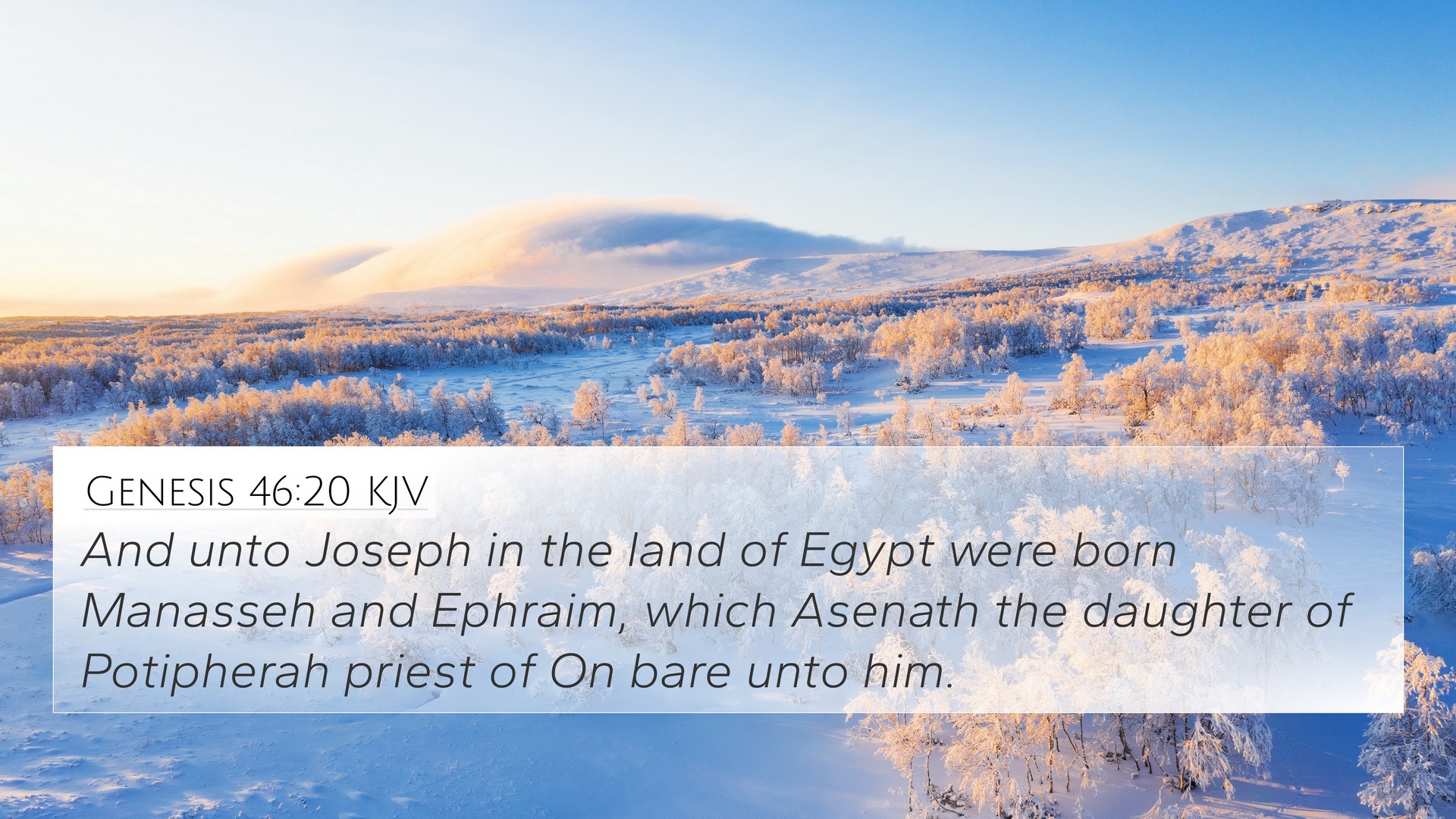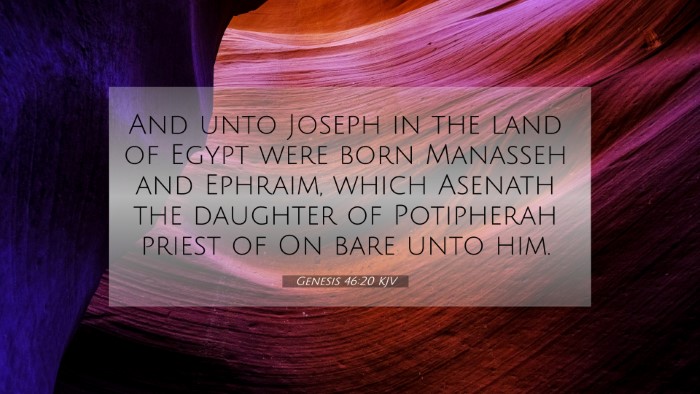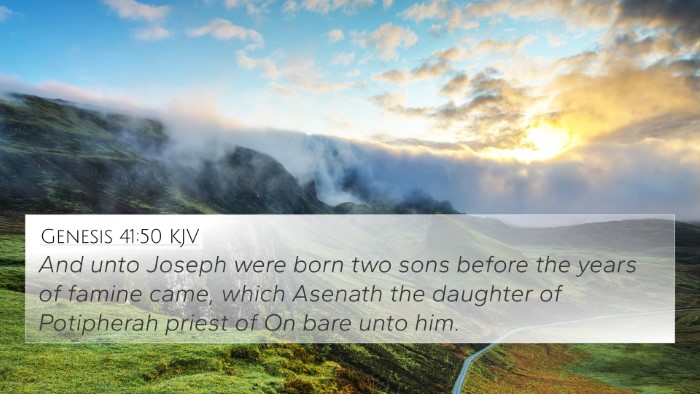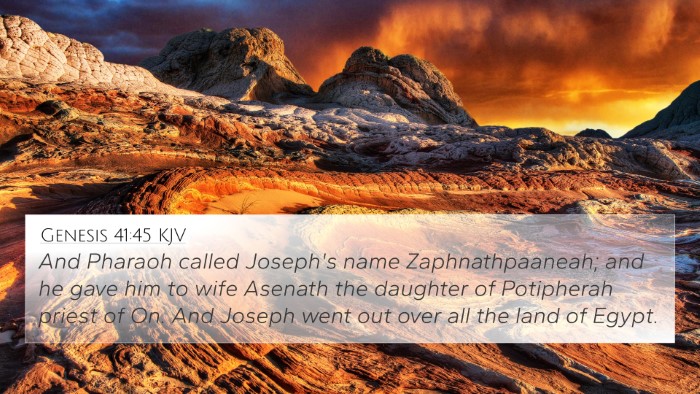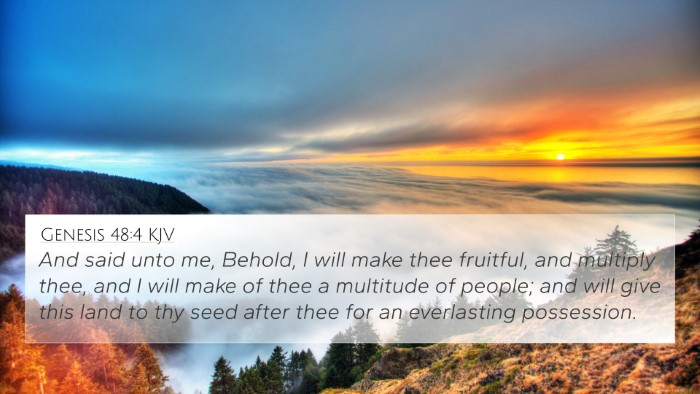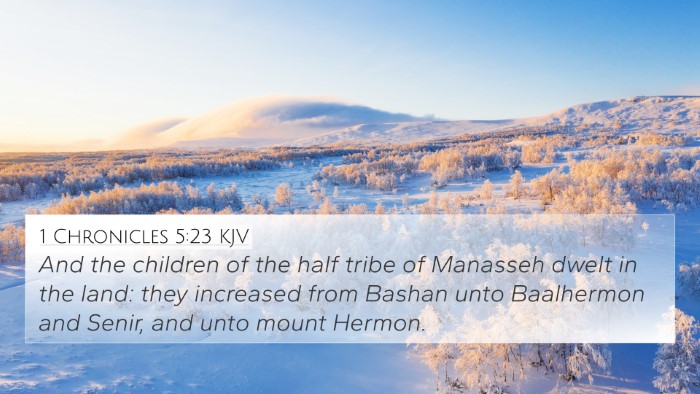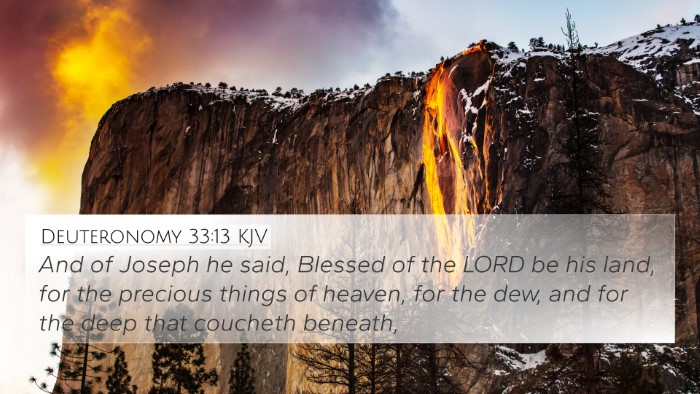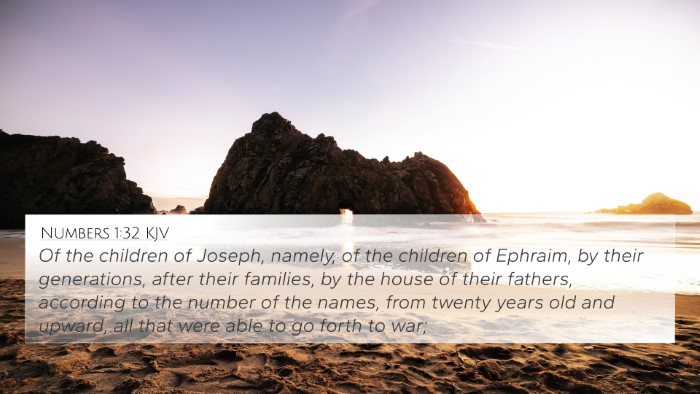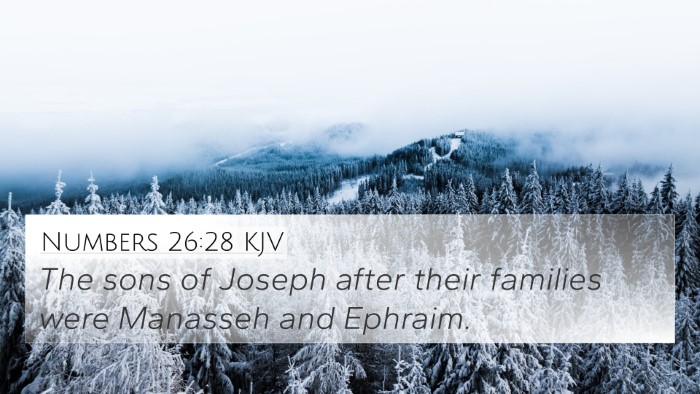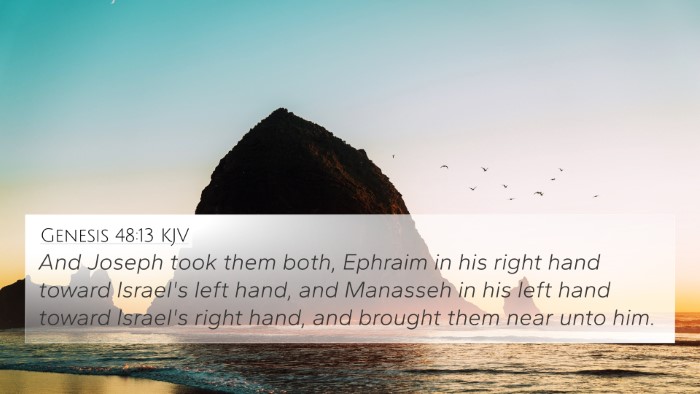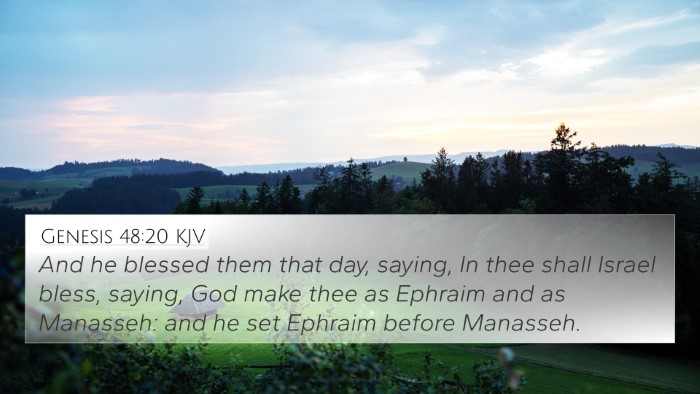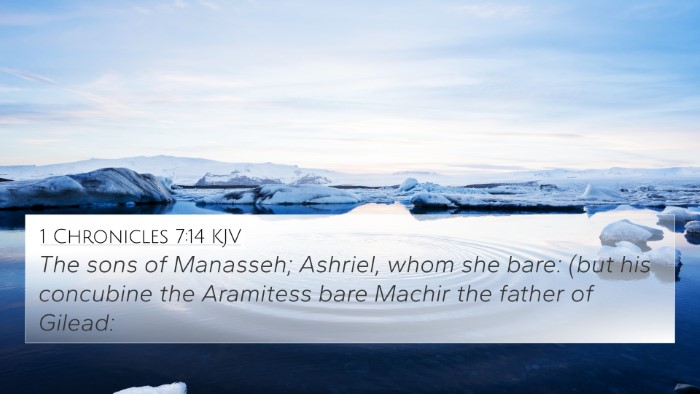Understanding Genesis 46:20
In Genesis 46:20, the verse states:
"And unto Joseph in the land of Egypt were born Manasseh and Ephraim, which Asenath the daughter of Potipherah priest of On bare unto him."
This verse marks a significant moment in the narrative of Joseph's family, signifying the birth of his two sons, Manasseh and Ephraim, while he resides in Egypt. This event encapsulates the themes of providence, identity, and the unfolding plan of God amidst historical circumstances.
Key Themes and Insights
- Divine Providence: This verse emphasizes God’s sovereignty in placing Joseph in Egypt, leading to the birth of his children there. The birth of Manasseh and Ephraim symbolizes God's working in the midst of trials.
- Family Heritage: The mention of Joseph’s sons highlights the importance of lineage and the establishment of tribes that will play a significant role in Israel's future.
- Identity Formation: Naming children often reflects identity. Manasseh's name, meaning "forgetting," reveals Joseph’s struggle with his past, while Ephraim, meaning "fruitful," signifies prosperity in a foreign land.
- God's Blessing: The context shows that despite being in a land of oppression (Egypt), God blessed Joseph with children, indicating that He can bring forth abundance even in hardship.
Comparative Bible Verse Analysis
To fully grasp the implications of Genesis 46:20, it is essential to perform comparative Bible verse analysis. Here are some verses that enhance the understanding of Genesis 46:20:
- Genesis 48:1-5: In this passage, Jacob blesses Joseph's sons, which affirms their significance in Israel’s future.
- Genesis 41:51-52: Here, Joseph names his sons, providing insight into his emotional state and his faith in God’s providence.
- Deuteronomy 33:13-17: This portion discusses the blessings bestowed on the tribes of Ephraim and Manasseh, showcasing their future impact.
- Hebrews 11:21: Mention of Jacob blessing the sons of Joseph ties back to the legacy established in Egypt.
- Exodus 1:1-7: Confirms the growth of the Israelites in Egypt, indicating the fulfillment of God’s promise to Abraham in Genesis 15:13.
- Psalm 105:23: References Israel's journey into Egypt, reiterating the role of Joseph’s lineage in God’s plan.
- Isaiah 11:13: Discussing the division between Ephraim and Judah, revealing the complexities of tribal relationships originating here.
Connecting Themes in the Bible
The narrative of Genesis 46:20 serves as a pivotal point for understanding the broader biblical narrative through cross-referencing biblical texts and recognizing thematic connections:
- Identity and Heritage: Themes of personal identity are echoed in New Testament teachings such as Philippians 3:20, where believers' true citizenship is in heaven.
- Unforeseen Blessings: The journey of Joseph parallels stories of God's provision revealed in James 1:17, showcasing God giving good gifts to His people.
- Faith Amidst Trials: Similar sentiments of trust in God despite adversity can be found in Romans 8:28, illustrating that all things work together for good for those who love God.
Scriptural Cross-Referencing
For those exploring tools for Bible cross-referencing, using a Bible concordance or a Bible cross-reference guide can illuminate connections between scripture passages, enhancing comprehension. Effective cross-referencing methods include:
- Identifying repeated themes, such as family and blessings.
- Tracing genealogies that lead to significant biblical figures.
- Using thematic studies to group verses by similar teachings or events.
Conclusion
Genesis 46:20 acts as a lens through which we can examine God's intricate plan of redemption as it unfolds throughout the scripture. The birth of Manasseh and Ephraim carries implications not just for Joseph, but for the entire nation of Israel and the ongoing narrative of divine providence. By engaging in inter-Biblical dialogue and leveraging cross-referencing Bible study methods, readers can gain a richer understanding of the interconnectedness of scripture.
